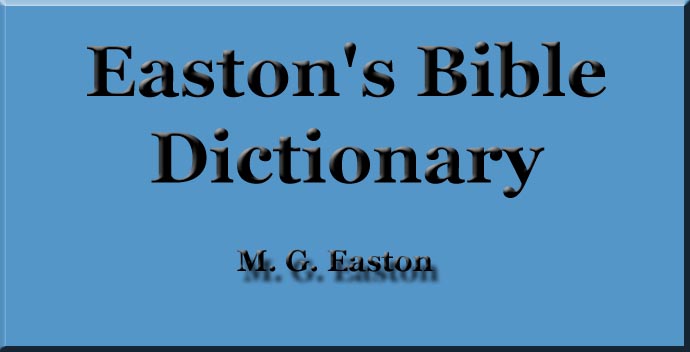

Law A rule of action. (1.) The Law of Nature is the will of God as to human conduct, founded on the moral difference of things, and discoverable by natural light (Rom 1:20; Rom 2:14, Rom 2:15). This law binds all men at all times. It is generally designated by the term conscience, or the capacity of being influenced by the moral relations of things. (2.) The Ceremonial Law prescribes under the Old Testament the rites and ceremonies of worship. This law was obligatory only till Christ, of whom these rites were typical, had finished his work (Heb 7:9, Heb 7:11; Heb 10:1; Eph 2:16). It was fulfilled rather than abrogated by the gospel. (3.) The Judicial Law, the law which directed the civil policy of the Hebrew nation. (4.) The Moral Law is the revealed will of God as to human conduct, binding on all men to the end of time. It was promulgated at Sinai. It is perfect (Psa 19:7), perpetual (Mat 5:17, Mat 5:18), holy (Rom 7:12), good, spiritual (Rom 7:14), and exceeding broad (Psa 119:96). Although binding on all, we are not under it as a covenant of works (Gal 3:17). (See COMMANDMENTS.) (5.) Positive Laws are precepts founded only on the will of God. They are right because God commands them. (6.) Moral positive laws are commanded by God because they are right.
Law of Moses Is the whole body of the Mosaic legislation (Kg1 2:3; Kg2 23:25; Ezr 3:2). It is called by way of eminence simply "the Law" (Heb. Torah , Deu 1:5; Deu 4:8, Deu 4:44; Deu 17:18, Deu 17:19; Deu 27:3, Deu 27:8). As a written code it is called the "book of the law of Moses" (Kg2 14:6; Isa 8:20), the "book of the law of God" (Jos 24:26). The great leading principle of the Mosaic law is that it is essentially theocratic; i.e., it refers at once to the commandment of God as the foundation of all human duty.
Lawyer Among the Jews, was one versed in the laws of Moses, which he expounded in the schools and synagogues (Mat 22:35; Luk 10:25). The functions of the "lawyer" and "scribe" were identical. (See DOCTOR.)
Lazarus An abbreviation of Eleazar, whom God helps. (1.) The brother of Mary and Martha of Bethany. He was raised from the dead after he had lain four days in the tomb (John 11:1-44). This miracle so excited the wrath of the Jews that they sought to put both Jesus and Lazarus to death. (2.) A beggar named in the parable recorded Luk 16:19.
Leaf Of a tree. The olive-leaf mentioned Gen 8:11. The barren fig-tree had nothing but leaves (Mat 21:19; Mar 11:13). The oak-leaf is mentioned Isa 1:30; Isa 6:13. There are numerous allusions to leaves, their flourishing, their decay, and their restoration (Lev 26:36; Isa 34:4; Jer 8:13; Dan 4:12, Dan 4:14, Dan 4:21; Mar 11:13; Mar 13:28). The fresh leaf is a symbol of prosperity (Psa 1:3; Jer 17:8; Eze 47:12); the faded, of decay (Job 13:25; Isa 1:30; Isa 64:6; Jer 8:13). Leaf of a door (Kg1 6:34), the valve of a folding door. Leaf of a book (Jer 36:23), perhaps a fold of a roll.
League A treaty or confederacy. The Jews were forbidden to enter into an alliance of any kind (1.) with the Canaanites (Exo 23:32, Exo 23:33; Exo 34:12); (2.) with the Amalekites (Exo 17:8, Exo 17:14; Deu 25:17); (3.) with the Moabites and Ammonites (Deu 2:9, Deu 2:19). Treaties were permitted to be entered into with all other nations. Thus David maintained friendly intercourse with the kings of Tyre and Hamath, and Solomon with the kings of Tyre and Egypt.
Leah Weary, the eldest daughter of Laban, and sister of Rachel (Gen 29:16). Jacob took her to wife through a deceit of her father (Gen 29:23). She was "tender-eyed" (Gen 29:17). She bore to Jacob six sons (Gen 29:32), also one daughter, Dinah (Gen 30:21). She accompanied Jacob into Canaan, and died there before the time of the going down into Egypt (Gen. 31), and was buried in the cave of Machpelah (Gen 49:31).
Leannoth For answering; i.e., in singing, occurs in the title to Ps. 88. The title "Mahalath (q.v.) Leannoth" may be rendered "concerning sickness, to be sung" i.e., perhaps, to be sung in sickness.
Leasing (Psa 4:2; Psa 5:6) an Old English word meaning lies, or lying, as the Hebrew word kazabh is generally rendered.
Leather A girdle of, worn by Elijah (Kg2 1:8) and John the Baptist (Mat 3:4). Leather was employed both for clothing (Num 31:20; Heb 11:37) and for writing upon. The trade of a tanner is mentioned (Act 9:43; Act 10:6, Act 10:32). It was probably learned in Egypt.